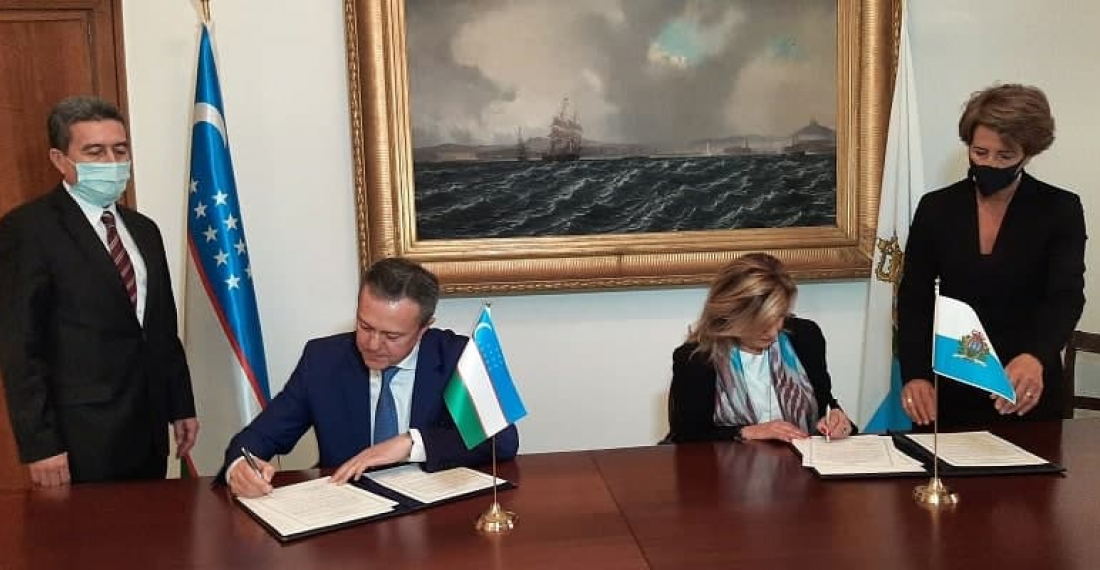On Wednesday (3 February) Uzbekistan and the Republic of San Marino signed a protocol on the establishment of diplomatic relations between the two countries. For Uzbekistan, San Marino becomes the 136th country with which the country establishes diplomatic relations.
The Embassy of Uzbekistan in Rome reported that Uzbek Ambassador Otabek Akbarov and San Marino's Ambassador to Italy, Daniela Rotondaro, signed the document during an official ceremony.
Rotondaro underlined her readiness for further interaction with Uzbekistan within the framework of the Food and Agriculture Organisation (FAO) and the International Fund for Agriculture (IFAD), both of which are based in Rome. According to her, the two countries can work together to ensure food security and healthy nutrition, and to eradicate poverty.
She also expressed interest in developing bilateral relations through trade and economic cooperation. According to the ambassador, San Marino is ready to work out and sign bilateral agreements on mutual protection and promotion of investments and double taxation avoidance.
"San Marino, which has close ties with the European Union, can offer Uzbek companies and exporters good opportunities to enter European markets," Rotondaro said.
It was noted that another important area of cooperation between San Marino and Uzbekistan could be the tourism sector.
San Marino is located in Southern Europe and is surrounded by the territory of Italy. It is one of the smallest countries in the world (61 square kilometres). San Marino is considered the oldest state in Europe (dating back to 301) and has one of the world's oldest constitutions. Furthermore, San Marino is one of the world's wealthiest countries in terms of GDP per capita ($56,690 in 2020).







